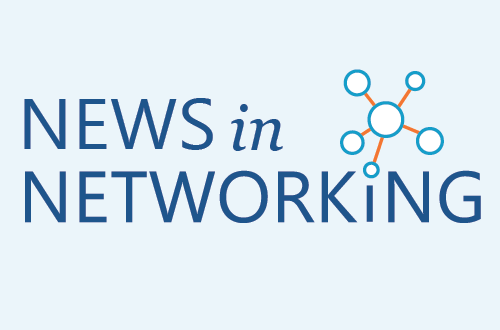News in Networking: The Best Network Speeds, Cuba’s DIY Internet, and the Cost of Automation

Summary
This week, Verizon was dubbed a winner of network speeds. Mitel agreed to buy ShoreTel. Viacom said it wouldn’t buy Scripps. Packet grew globally. The Ericsson-Cisco partnership slowed. And feature articles highlighted Cuba’s internet and IT automation costs. More headlines after the jump…
This week’s top story picks from the Kentik team.

Here are those headlines and more:
- Verizon Keeps Top Spot as Best-Performing Network (CNET) A new report from RootMetrics ranks Verizon as having the best network speeds. According to CNET, “All four major wireless carriers improved their median network speeds in at least 20 markets.”
- Mitel to Buy ShoreTel for $430M to Create Unified Communications Powerhouse (TechCrunch) Telecommunications company and UC provider Mitel is buying competitor ShoreTel. According to TechCrunch, “The two companies when combined will have 3,200 channel partners and 4,200 employees worldwide.”
- Viacom Out of the Running for Scripps Networks (Wall Street Journal) Media conglomerate Viacom has bowed out of the bidding to buy Scripps Networks Interactive. The Wall Street Journal reports that leaves Discovery Communications as “the only remaining suitor in talks to purchase the cable TV programmer.”
- Packet Expands Its Global Infrastructure with 11 New Edge Locations (TechCrunch) Bare metal cloud provider Packet is quickly gaining ground. The company announced its expanding into 15 data centers across the globe. “The idea behind these new edge locations, which are now online in Los Angeles, Seattle, Dallas, Chicago, Ashburn, Atlanta, Toronto, Frankfurt, Singapore, Hong Kong and Sydney, is to give Packet’s users the ability to easily deploy a global low-latency infrastructure,” reported TechCrunch.
- Ericsson-Cisco Partnership Activity Expected to Slow Until 2020 (TechTarget) Some analysts’ have lowered their expectations for telecom equipment-manufacturer Ericsson’s partnership with Cisco. TechTarget reports the deal intended to generate $1 billion in annual sales by 2018, but Ericsson has seen a buying slowdown largely due to the fact that “most service providers have bought the network infrastructure needed for the 4G networks connecting mobile devices today.” That will change with 5G — but likely not until 2020.
- Congress Summons ISPs and Websites to Hearing (Ars Technica) Net neutrality debates continue, with ISPs and web companies being the latest group called to testify before Congress. “I’m sending formal invitations to the top executives of the leading technology companies including Facebook, Alphabet, Amazon, and Netflix, as well as broadband providers including Comcast, AT&T, Verizon, and Charter Communications, inviting each of them to come and testify before our full Energy and Commerce Committee,” US Rep. Greg Walden (R-Ore.) said during a FCC oversight according to Ars Technica.
- Inside Cuba’s DIY Internet Revolution (Wired) Wired just published a feature story on how Cuban are creating workarounds for lack of access to an open internet. One of those workarounds: “Every week, more than a terabyte of data is packaged into external hard drives known as el paquete semanal (“the weekly package”). It is the internet distilled down to its purest, most consumable, and least interactive form: its content. This collection of video, song, photo, and text files from the outside world is cobbled together… and it travels around the island from person to person… a network that transmits data via shoe rubber, bus, horseback, or anything else.”
- The Hidden (Human) Cost of Automation (Light Reading) Light Reading’s founder and CEO discusses automation in a new article this week. Included in his opinion piece is an example: “AT&T currently employs 246,000 staff. Moving to a software-based, virtualized and automated network could potentially enable it to eliminate 30% of its staff (or 78,000 employees) according to one source. Assuming an average salary of $70,000, not including benefits, that’s an annual savings for AT&T of $5,166,000,000 — or a scoot over $5 billion — but also, obviously, results in a major human cost to those who could lose their jobs.”
Until next week, follow us on Twitter and LinkedIn to see more of these headlines in real time.
